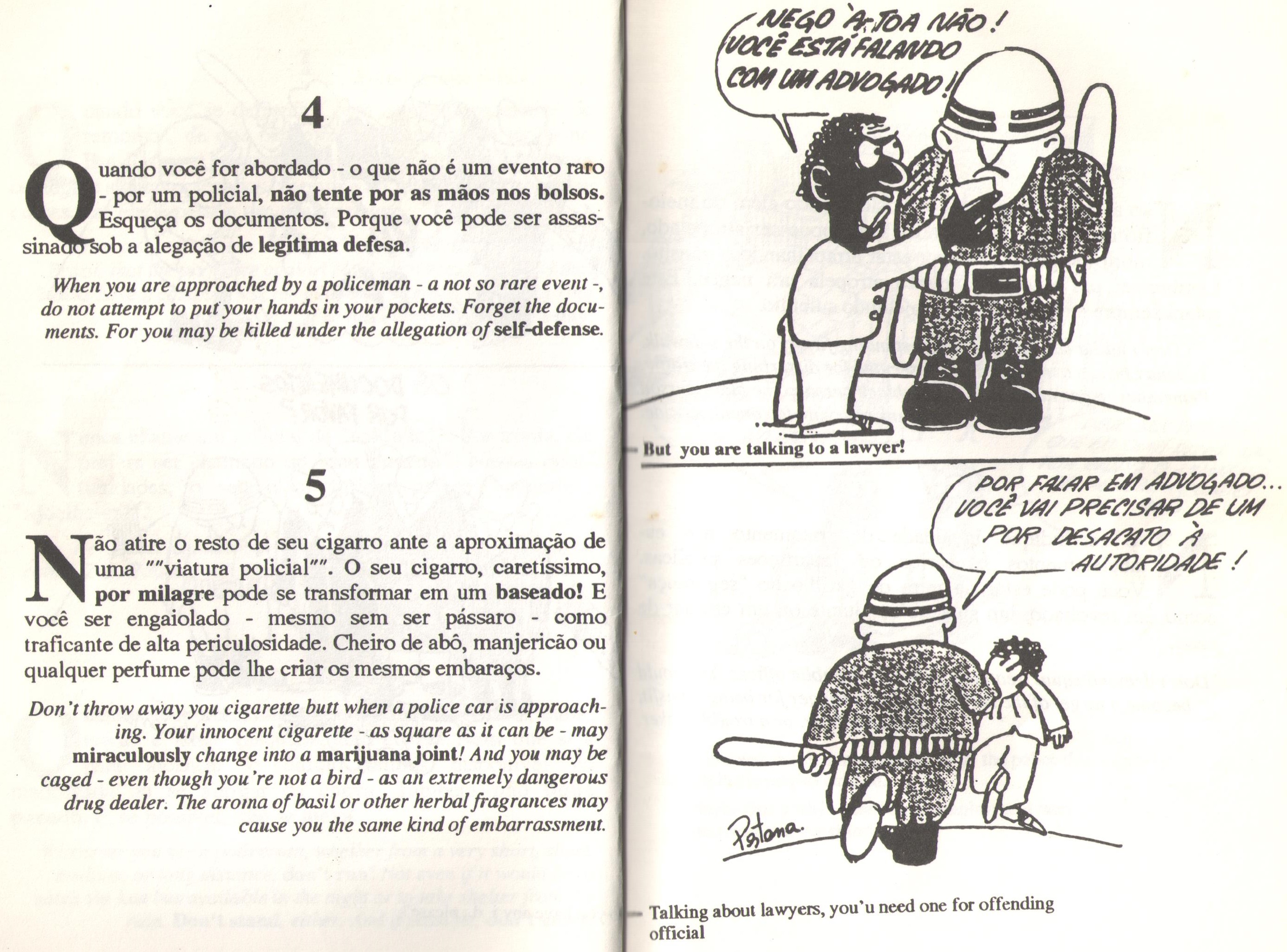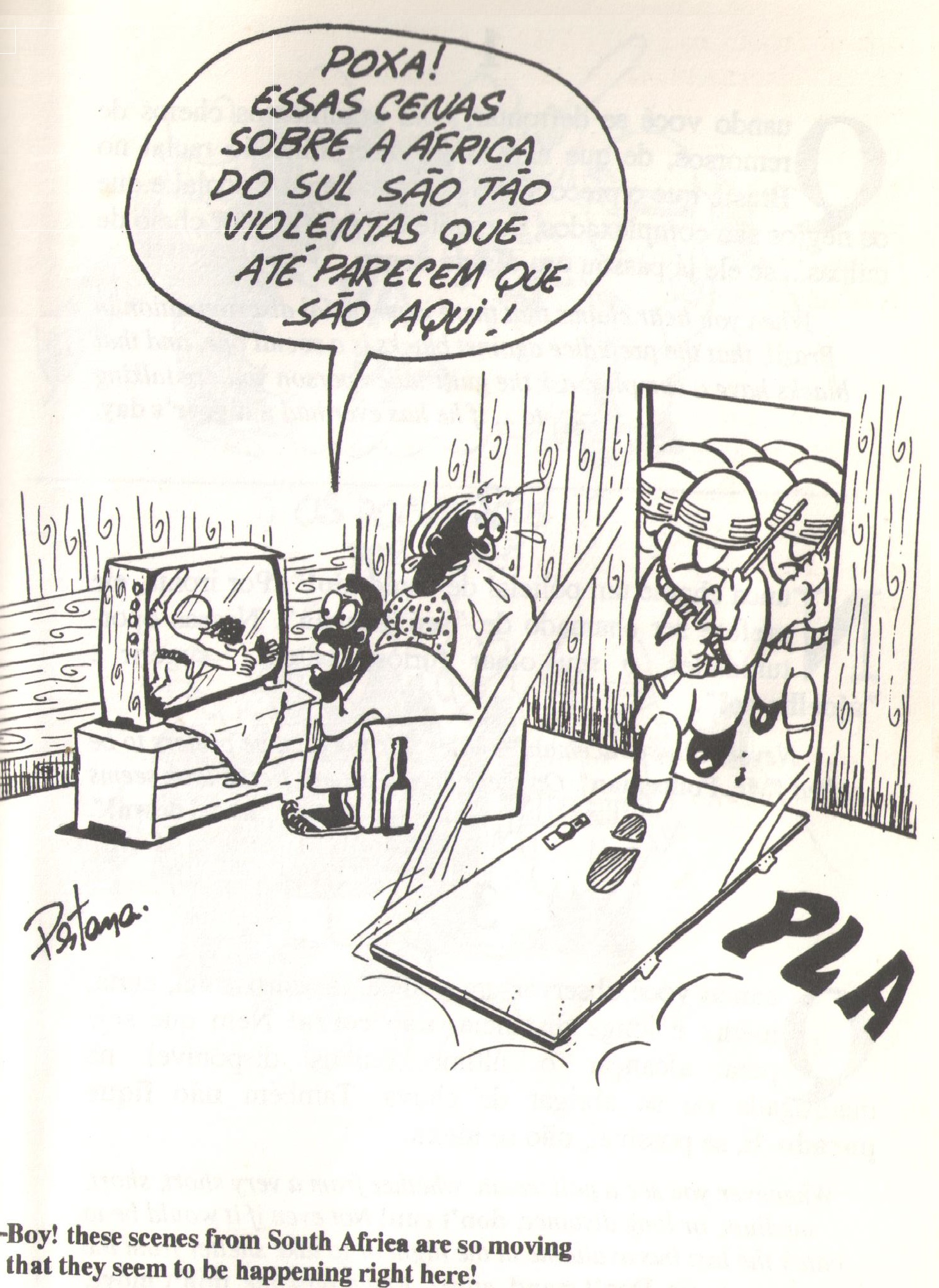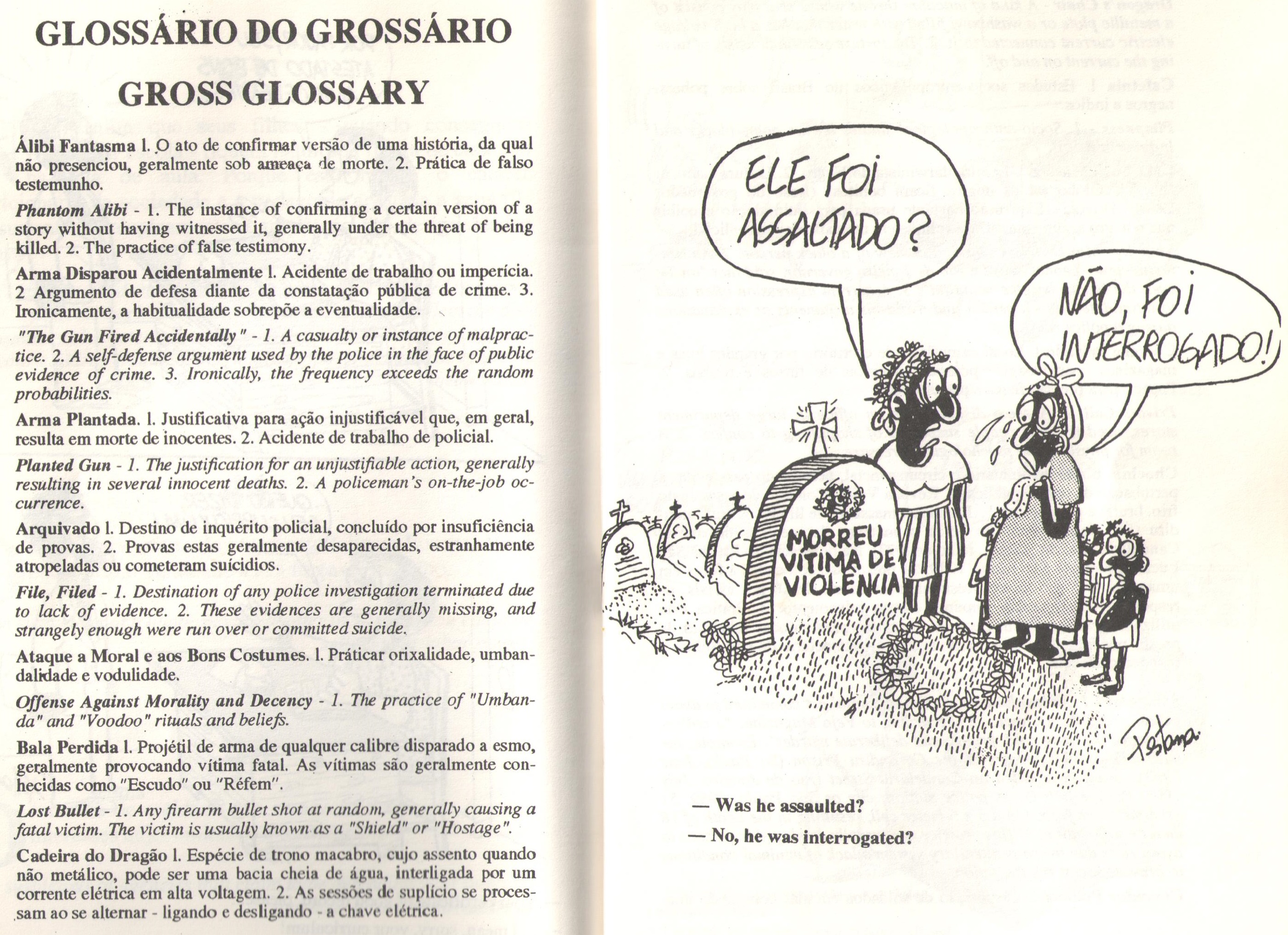Manual de sobrevivência do negro no Brasil
(fragmentos)
A étnica da ética
"Ah! Ah, se eu fosse negro". Henfil
No momento em que vários setores da sociedade brasileira saem às ruas conclamando por ética na política, questionamos se não seria oportuno também se perguntar: de que ética se trata? Para quê? E para quem? E, principalmente, se já houve ética no Brasil?
A ética dos colonizadores - exterminadores entradantes, bandeirantes e jesuítas - não era idêntica, sem dúvidas, à dos índios, assim como a ética do senhor jamais foi a do escravo. Dessa forma, a ética de Zumbi, Antonio Conselheiro e Lampião era diferente da de Domingos Jorge Velho, do marechal Floriano Peixoto e da polícia bahiana que perseguiu o cangaço.
A ética dos caraspintadas, que sairam às ruas reivindicando redução de mensalidades e o pagamento de meia entrada em casas de espetáculos, não pode ser semelhante à dos quase 2 milhões de jovens negros que, sem direito à educação e acesso pleno ao mercado de trabalho, agitam os bailes funks do Rio e São Paulo nos finais de semana, mesmo com repressão policial.
Em síntese, o que é ético para o branco, neste país subdesenvolvido, até na sua miserável e infeliz condição de racista, nunca foi para o negro. Porque para nós - Negros -, a ética sempre foi uma grande piada. Por isso, não podíamos começar este serviço de negro sem ressaltar que os caraspintadas, ora teleguiados pelas elites brasileiras, estão gritando diante de instituições em estado de putrefação. E que nós, caraspintadas por natureza, estamos clamando há cinco séculos. E que nossa luta pela sobrevivência tem sido uma permanente campanha contra a fome.
Assim, ao invés de uma ética voltada apenas para a "política menor e discricionária" do jogo de interesses desses setores, que se revesam no poder, queremos ética de verdade na política, na polícia, nas relações capital/trabalho, nos meios de comunicação e em outras situações, que aqui demonstramos com Humor Negro de Verdade neste trabalho da nossa cor. Isto é, antropoético e transnegressor.
Porque quando uma sociedade não distingue mais os limites entre a comédia e a tragédia, ocorre que as instituições que a sustentam chegam a tal grau de degradação dos valores humanos que não há mais ídolos para serem celebrados nem heróis para serem glorificados.
Arnaldo Xavier
Mauricio Pestana
The ethnicity of ethics
"Ah! Ah, if I were Black...". Henfil
At a moment when several segments of the Brazilian society take to the streets claiming for ethics in politics, we wonder if it wouldn't be pertinent to aIso ask: What kind of ethics are we talking about? What for? Whom for? And especially, has there ever been any ethics in Brazil?
The ethics of the colonizers - the exterminators from the "entradas e bandeiras" and the Jesuits - certainly was not identical to the ethics of the Indians, as the master's ethics was never the same as the slave's. Thus, the ethics of Zumbi, Antônio Conselheiro and Lampião was different from that of Domingos Jorge Velho, Marshall Floriano Peixoto, and the police that chased the "cangaço".
The ethics of the "caraspintadas"(*), who took to the streets demanding a reduction of their monthly school fee and discount prices at movie theaters, can't be compared to that of the nearly two-million young black people who - with no right to education and free access to the job market denied - stir up funk parties in Rio and São Paulo, despite repression by the police.
To sum it up, what is ethical for the white man in this underdeveloped country - even in his sad and miserable condition of racist - has never been so for the black man. Because for us - blacks - ethics has always been a big joke. That's why we couldn't begin this nigger's job without emphasizing the fact that the "caraspintadas" now guided by the Brazilian elites are screaming at rotten institutions. And that we, born with our faces naturally colored, have been screaming for five centuries already. And that our struggle for survival has been a permanent campaign against starvation.
So, instead of an ethics directed solely towards a "minor and discriminatory politics" in the monopoly game of the segments of society that altemate each other in power, we want a real ethics in politics, in the police, in the capital/labor relations, in the mass media, and in other situations which we show with a real black sense of humor here in this work that has our color. That is, an anthropoetical and transnegroessor work.
For when a society can no longer distinguish the boundaries between Comedy and Tragedy, its supporting institutions have reached such a degree of degradation of human values that there no longer are idols to celebrate nor heroes to glorify.
Arnaldo Xavier
Maurício Pestana
(Manual de sobrevivência do Negro no Brasil, p. 7-10, 1993)

(Manual de sobrevivência do Negro no Brasil, p. 14-15, 1993)

(Manual de sobrevivência do Negro no Brasil, p. 10, 1993).

(Manual de sobrevivência do Negro no Brasil, p. 44-45, 1993)